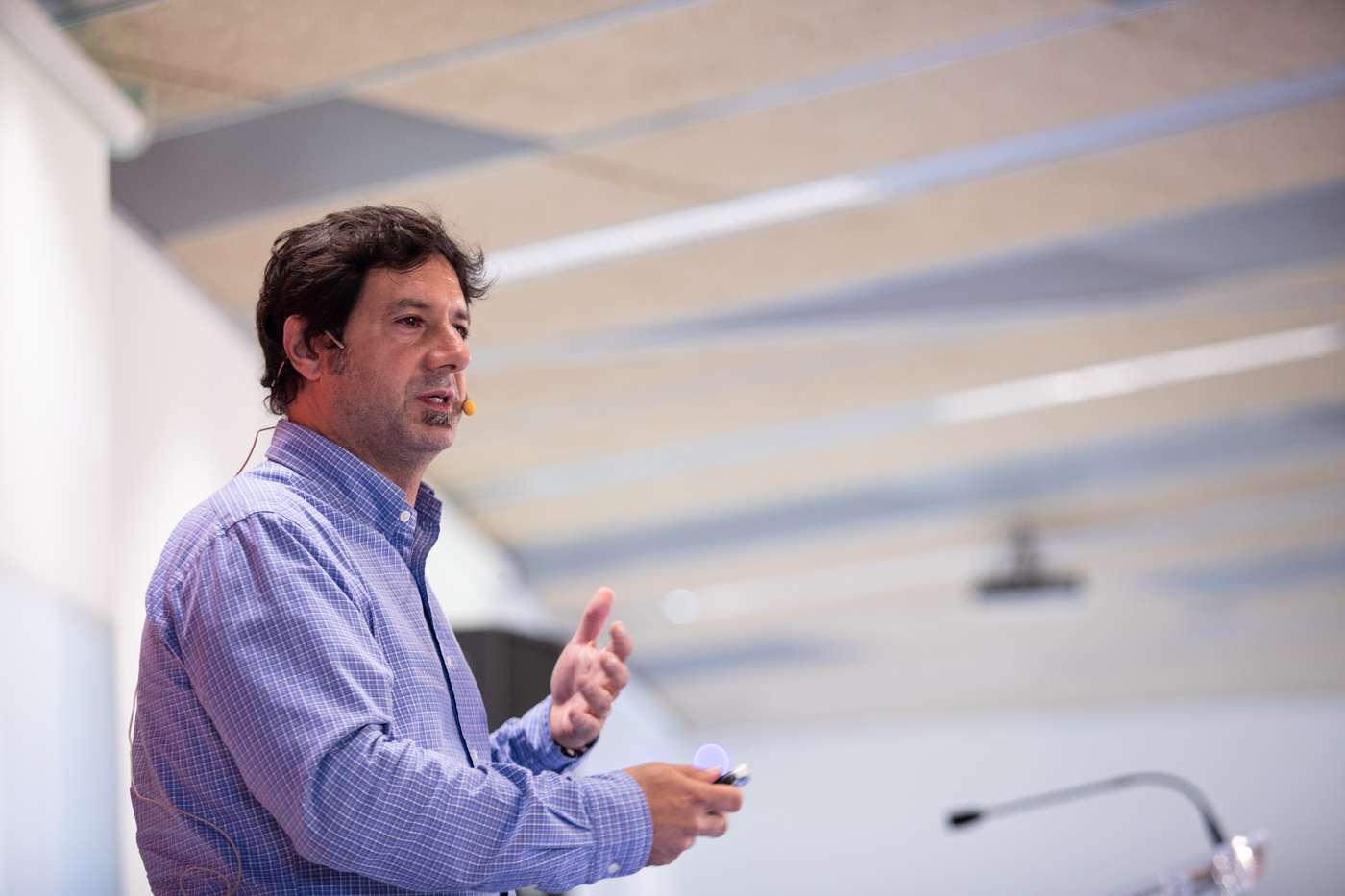April 15, 2025
The Quantum Computing revolution is no coincidence | Aitor Moreno
Aitor Moreno Fdz. de Leceta, Quantum Computing Area Manager at Ayesa
In the quantum world, unlike in the classical one, coincidences do not exist—only probabilities. That’s why it is no coincidence that UNESCO has declared 2025 the International Year of Quantum Science and Technology.
A century after the very foundations of quantum theory were laid, this initiative recognizes the revolutionary impact of quantum mechanics on science and society at large. Quantum science will be essential for sustainable development and holds the potential to help address many of the key social challenges highlighted in the United Nations’ Sustainable Development Goals for 2030.
Why now? For the first time in history, we have hardware based on the mathematical principles of quantum mechanics—specifically superposition and entanglement—enabling us to process vast amounts of information in parallel, by brute force, using an analog rather than a digital approach, unlike traditional computational systems.
This new way of processing information is transforming the paradigms of multiple engineering fields: from the simulation of physical systems and digital twins to the development of a new type of artificial intelligence (Quantum Machine Learning), along with groundbreaking models in cybersecurity and telecommunications.
If we can apply a function—be it for search, cost analysis, or similarity evaluation—in parallel, within a single cycle, across all records, logistical scenarios, or observations, there is no longer a need for database indexing, heuristic optimization solvers, or AI models dependent on massive training datasets. All that’s needed is a system capable of evaluating every scenario, one by one, in a fraction of the time.
And this is precisely what Quantum Computing systems allow. They offer enhanced result quality—this new AI does not rely on generalizations, delivering more precise and sensitive outcomes. You can be confident that every possible scenario has been evaluated, without approximation. The business advantage is clear: you always get the best scenario or outcome, enabling faster, more accurate, and more effective decision-making in any sector.

Therefore, it is no coincidence that we are witnessing a global geopolitical “race” where all leading nations and regions have, without exception, their own quantum technology strategies. Nor is it surprising that there is an ongoing technological and commercial “war” among Big Tech companies to deliver the most powerful and advanced quantum computing systems—whether physical or emulated.
It is also no coincidence that the most cutting-edge companies across sectors—industry, energy, healthcare, banking, logistics, pharmaceuticals, and even defense and aerospace—are already implementing quantum solutions in production environments. Many of these use cases were showcased at the most recent World Economic Forum in Davos, demonstrating that practical, useful quantum computing is already a reality and provides a tangible business advantage.
Naturally, it is far from coincidental that Ayesa has been conducting research, development, and innovation in Quantum Computing for over seven years (since 2018), through its R&D center—the Ibermática Institute of Innovation (i3B)—integrating quantum solutions within its client ecosystem and redefining the present landscape of computing and advanced engineering. The vision from i3B’s Technology Observatory was crystal clear: “AI will be quantum or it won’t be at all”—and we acted on it.
A few years later, thanks to this early initiative, Ayesa has emerged as an international leader in deploying these new models in production environments, with quantum solution implementations for key clients such as ONCE, Iberdrola, Mercedes-Benz, Sener, Incibe, and Cesga, among others.
In addition, Ayesa—through the Ibermática Foundation—has become a benchmark for driving and supporting the adoption, dissemination, deployment, and education of quantum technologies across public administrations, business associations, technology clusters, innovation ecosystems, universities, research centers, and specialized training institutions. The company plays a vital role in shaping the new generation of professionals, data scientists, and engineers in quantum technologies—profiles that are increasingly in demand both academically and in the business world.
While some may still view Quantum Technologies as a distant future, the data tells a different story: the compound annual growth rate of the global quantum computing market already surpasses that of traditional AI. Nearly all the proofs of concept developed by Ayesa are successfully converted into production systems, due to the high quality of the results and client satisfaction. Demand for quantum computing projects continues to intensify, driving exponential technological development—just like the technology itself. This, too, is no coincidence.
The competitive edge provided by artificial intelligence a decade ago is already gone—today, AI is a requirement for any organization. The same will soon be true for Quantum Computing. In just a few years, it will no longer be a differentiating factor, but a foundational necessity for businesses across the board. Now is the time to harness quantum advantage in current business models.
That is why it’s no coincidence that this year marks the inflection point at which organizations must decide whether they want to lead the change or fall behind. Quantum Computing is no longer a futuristic theory—it is a real engine of transformation across industry, AI, and engineering. Those who fail to recognize this today will, in all probability, find themselves out of the game tomorrow—and that won’t be a coincidence either.
Impulsamos tus proyectos
Estamos aquí para ti, para asesorarte personalmente y ofrecerte el producto que necesitas.